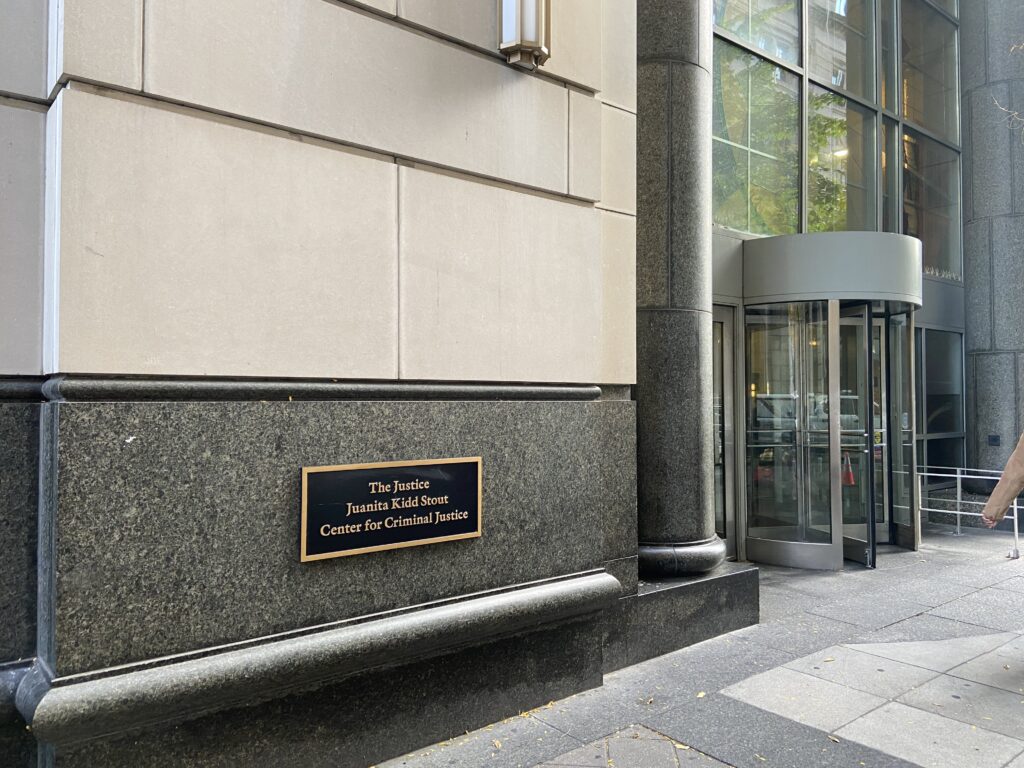(PHILADELPHIA) – Defendant Kahri Morris was acquitted on charges of sexual assault on Oct. 27 by a Philadelphia Municipal Court jury. The charges were brought to the Philadelphia District Attorney Larry Krasner’s office by a woman who alleged that Morris raped her on April 28, 2021 while she was sleeping.
Closing arguments were held on Oct. 26 at the Court of Common Pleas in Center City Philadelphia. Morris, 35 was charged with three counts of rape by forcible compulsion, sexual assault, and false imprisonment.
“What I witnessed yesterday was nothing short of alarming,” said defense attorney Martin Locke of the Defender Association of Philadelphia at closing arguments, referencing the accuser’s testimony.
The woman testified in court that when she was 17 years old following a months-long romantic relationship, Morris came into her mother’s house while she was sleeping and forced himself onto her, kissing her and holding her down so she could not get away. After the event, Assistant District Attorney Lauren Doig reported that Morris told her client, “Don’t act like you didn’t like that.”
Jury selection began on Oct. 24 with the trial beginning the next day. By the time of closing arguments, the jury had been presented with accounts from the victim, her mother, and the police officer who received the assault report. Morris did not testify at trial.
Much of the deliberation before final arguments among the parties and Judge Anthony George Kyriakakis concerned whether the accuser’s statement to her mother immediately after the alleged event could be considered an immediate report or not. She reported the alleged event to police approximately six months later.
After lamenting that the Philadelphia Phillies had missed out on the World Series during their jury duty, Locke launched into disproving the charges against Morris. With animated gestures and dramatic pauses, he questioned how his client’s accuser could even bring this case forward with her quiet demeanor and the lack of connecting evidence.
After Locke’s closing argument, Doig presented her case to the jury on behalf of the victim. Providing empathy and context, the prosecutor explained that any young person describing such a graphic account may fumble on details and be soft spoken as her client was. Still, in The Commonwealth’ view, she said the evidence proved the case beyond a reasonable doubt.
“I’m going to use another Philly sports reference,” said Doig in response to Mr. Locke’s argument, “The video of the Philadelphia Eagles busting down the brick wall. Well, that’s how evidence works.”
While Locke disputed the claims that the parties involved ever had any kind of sexual relationship, Doig emphasized that her client trusted the defendant as a friend, making the alleged sexual assault more devastating and difficult to discuss in front of a court room and jury.
Perhaps the most significant piece of evidence referenced by both attorneys was a tape of a phone call between Morris and the victim. With a voice that is deep yet feeling, the victim expressed her hurt and trauma after the alleged advances of Morris. She expressed how she has not recovered from being coerced into non-consensual sex while Morris sounds confused and distant on the call. Locke used this as proof that Morris was taken aback and unaware why he was being accused of such a crime, and brought up how you can hear him “talking to his dad and feeding his dog.”
At least one person in the courtroom who asked not to be named expressed sympathy for the victim but felt that there was not enough evidence to convict Morris, citing inconsistencies in her story and the proof not reaching beyond a reasonable doubt.
The Click contacted the Defender Association of Philadelphia and the District Attorney’s offices for comment on the case, but neither responded.


